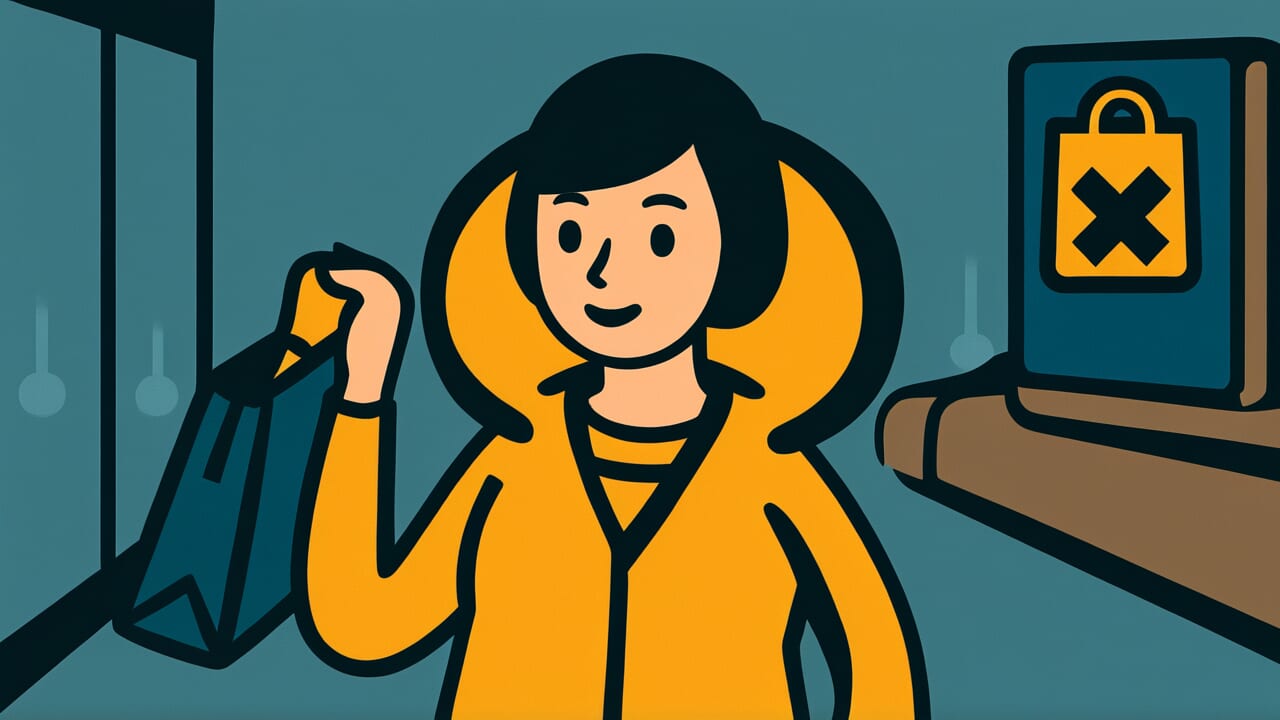How to Read “Young girls and small bags cannot be trusted”
komusume to kobukuro wa yudan ga naranu
Meaning of “Young girls and small bags cannot be trusted”
This proverb means that young women and small bags contain more than meets the eye. You should never underestimate them.
Young women may seem inexperienced and unreliable at first glance. But in reality, they often possess sharp observation skills, flexible thinking, and unexpected ability to take action.
Similarly, a small bag might hold something far more valuable or important than its size suggests.
People use this proverb to point out the danger of judging others or things by appearance or first impressions alone.
It serves as a warning that underestimating young people or small things can lead to unexpected consequences.
Even today, we often judge the value of people and things by age, appearance, or size. This proverb teaches us the importance of avoiding such preconceptions.
We should observe carefully and see the true nature of others.
Origin and Etymology
The exact first appearance of this proverb in literature is unclear. However, it likely emerged from the wisdom of common people during the Edo period.
The term “komusume” (young girl) has long been used to refer to young women. In that era’s society, young women were often viewed as inexperienced and weak.
But in reality, they often possessed flexible ideas due to their youth. They had wisdom and courage that you couldn’t imagine from their appearance.
“Kobukuro” literally means a small bag. During the Edo period, merchants used bags of various sizes to manage goods and money.
Everyone expected large bags to hold many things. But people tended to underestimate small bags.
Yet small bags often contained expensive items or important money. The lesson here is that you shouldn’t misjudge value based on small appearance.
By pairing these two elements, a stronger warning emerged about not judging things by appearance or first impressions.
Especially in business, our ancestors learned from experience that underestimating others could lead to great losses.
Usage Examples
- That new employee proves “Young girls and small bags cannot be trusted”—she’s already been assigned to an important project
- I underestimated that small shop, but “Young girls and small bags cannot be trusted”—they actually have the industry’s top technology
Universal Wisdom
The universal truth this proverb speaks to is a warning against the deep-rooted human tendency to “judge by appearance.”
We evolved the ability to judge situations instantly in order to survive. But that ability sometimes creates major mistakes.
Youth and smallness appear at first glance to signal “immaturity” or “insignificance.” But the fascinating thing about human society is that the gap between appearance and reality is where true interest lies.
The fresh perspective and bold ideas that young women possess can produce solutions that experienced people cannot see. Putting valuables in a small bag was wisdom that exploited exactly that gap.
This proverb has been passed down for so long because humans have repeated the same mistakes over and over. In every era, someone has underestimated others and suffered for it.
And our ancestors realized something important. Truly valuable things don’t necessarily come in large, impressive packages.
Rather, real power and value often dwell quietly within modest appearances. This is an unchanging truth in human relationships, in business, and in every aspect of life.
Not being fooled by appearances and having eyes that see essence—that is the eternal wisdom this proverb continues to convey to us.
When AI Hears This
When we see a small bag, we predict “the contents must also be small.” But from an information theory perspective, this is a serious judgment error.
The amount of external information and internal uncertainty often have an inverse relationship.
Information entropy is, simply put, “unpredictability” expressed numerically. When you flip one coin, there are only two outcomes—heads or tails—but which will appear is completely uncertain.
At this moment, information entropy reaches its maximum value of 1 bit. In other words, having fewer choices doesn’t make prediction easier.
Rather, a state where high uncertainty is compressed into few choices is the most dangerous situation.
With a small bag, the information obtained from appearance is about 1 bit—”it’s small.” But the contents might be jewels or poison.
This “poverty of external information” makes predicting the internal state extremely difficult. A large warehouse provides many clues to guess its contents, but a small bag is dangerous precisely because it offers too few clues.
According to the minimum description length principle, the more complex the information, the shorter it can be compressed. Things that appear small may actually have information packed in at high density.
This proverb brilliantly exposes the human cognitive bias of judging safety by external indicators like size alone.
Lessons for Today
What this proverb teaches you today is the importance of abandoning preconceptions and seeing the true nature of others.
Every day, we unconsciously make many judgments. Social media profile pictures, age on resumes, company size, the importance of job titles.
Aren’t we determining others’ value based on such superficial information?
Before dismissing a young colleague’s opinion as “lacking experience,” try listening. Before ignoring a small company’s proposal because “they’re too small,” examine the content carefully.
Great possibilities might be hidden in what you’ve been overlooking.
At the same time, this proverb is also encouragement for you. Even if you’re young now, even if you lack experience, even if your position is small, these things don’t determine your value.
Inside you, there is power sleeping that people around you haven’t noticed yet.
What matters is not the size or flashiness of appearance, but the richness of content. And you need two things: eyes that see others’ content, and effort to polish your own content.
If you don’t forget these two things, you will surely discover what is truly valuable. And you yourself will become a valuable person.



Comments